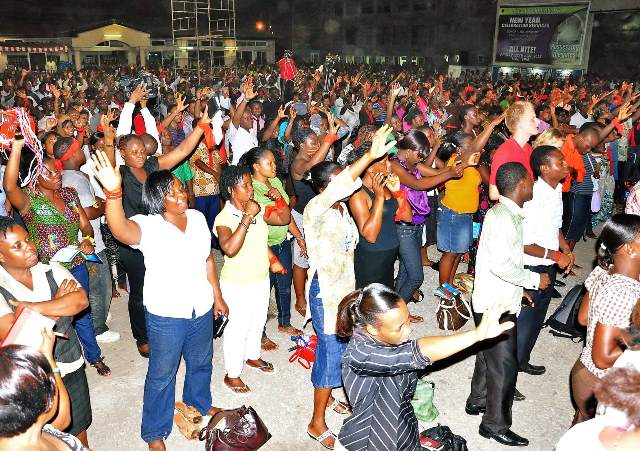Ahead of the celebration of New year coupled with 31st all-night services to cross over, the Ghana Catholic Bishops’ Conference (GCBC), has cautioned Christian ministers to desist from false prophecies and from other such practices, which only tend to discredit the Christian church and the Gospel of Christ.
“The peace which Christ brings to us and which all of us desire cannot be experienced if false prophecies and prophetic utterances continue to be entertained in our country as the new norm,” GCBC said in a Christmas and New Year Pastoral Letter.
The Pastoral Letter released on December 17, under the theme: Peace with God, Peace Among Humanity, Peace with All Creation, was signed by the President of the GCBC, the Most Rev. Philip Naameh.
In recent years, especially during the season of Christmas leading into the new year, there have been too many false prophesies made of which some have created fear, panic and tensions in our society.
This led to the Ghana Police Service issuing a statement cautioning against false prophecies.
In view of that, the Catholic Bishops encouraged Christians and indeed, all Ghanaians to cherish the values of hard work, patient endurance, perseverance, moderation and contentment, and not allow themselves to be led astray by false prophecies and prophetic utterances.
Meanwhile, the President of the National Prophetic and Charismatic Council, Archbishop-elect Elisha Salifu Amoako, has advised prophets to abide by the directives of the Inspector General of Police (IGP), Dr. George Akuffo Dampare, on prophecies that can cause fear on panic, reports the GNA.
The Police, in a statement, reminded religious groups that their rights to religion, freedom of worship and free speech were subject to the respect for the rights and freedoms of others according to the law of the country.
The Police said it was a crime for a person to publish or reproduce a statement, rumour or report, which was likely to cause fear and alarm to the public or to disturb the public peace without any evidence to prove that the statement, rumour or report was true.
It noted in a press statement that over the years, communications of prophecies of harm, danger and death by some religious leaders had created tension and panic in the Ghanaian society and put the lives of many people in fear and danger and that anybody found guilty under those laws could be liable to a prison term up to five years.
“We, therefore, wish to caution all Ghanaians, especially religious groups and leaders to be measured in their utterances, especially how they communicate prophecies, which may injure the right of others and the public interest.”
Archbishop-elect Salifu Amoako, in a response, said prophecies were products of spiritual engagements where God revealed His intentions about individuals and nations to prophets who had the mandate to reveal them according to God’s instructions.
He added that God at some instances could instruct prophets to speak about a pending danger, which could befall the nation but agreed circumspection was necessary.



